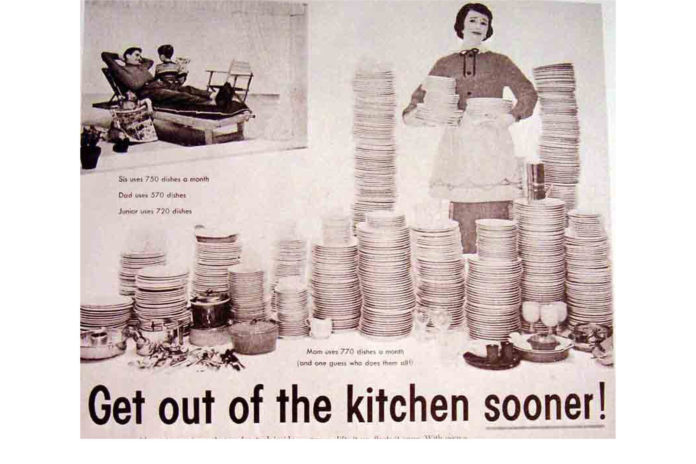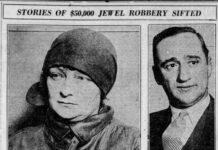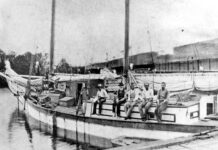Outrageous. Sexist.
Offensive. Appallingly outdated.
All would be accurate descriptions, by today’s standards, of the ads on the following pages, all of which appeared in popular magazines from the 1940s to 1960s.
They serve as a stark reminder of the progress women have made in shedding the smirking stereotypes often perpetuated by male-dominated ad agencies. (Think “Mad Men,” smoke-filled airplanes and three-martini lunches.)
While these ads are proof of the progress women have made in pursuit of equality, some of the facts and figures we’ve included with them show how far we still are from the finish line.
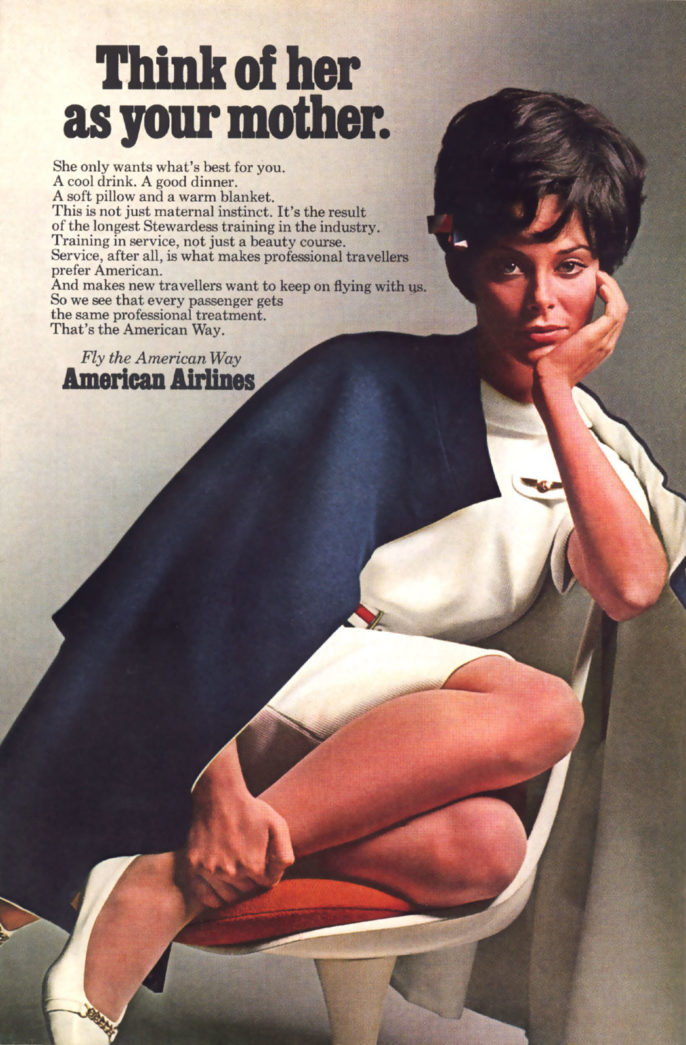
American Airlines | print advertisement | 1940s
• In 1957, Northwest and TWA airlines grounded female flight attendants at age 35, while male flight attendants could fly until their 60s, author Kathleen Barry writes in ‘Femininity in Flight: A History of Flight Attendants.”
• By 1971, stewardess uniforms had become a marketing tool to appeal to the predominantly male business travelers. Southwest’s air hostesses wore hot pants. National Airlines spent $9.5 million on an ad campaign that read, ‘I’m Cheryl. Fly Me,’ and ‘I’m going to fly you as you’ve never been flown before.’ Despite some outrage, National claimed a 23% bump in passenger traffic, Barry writes.
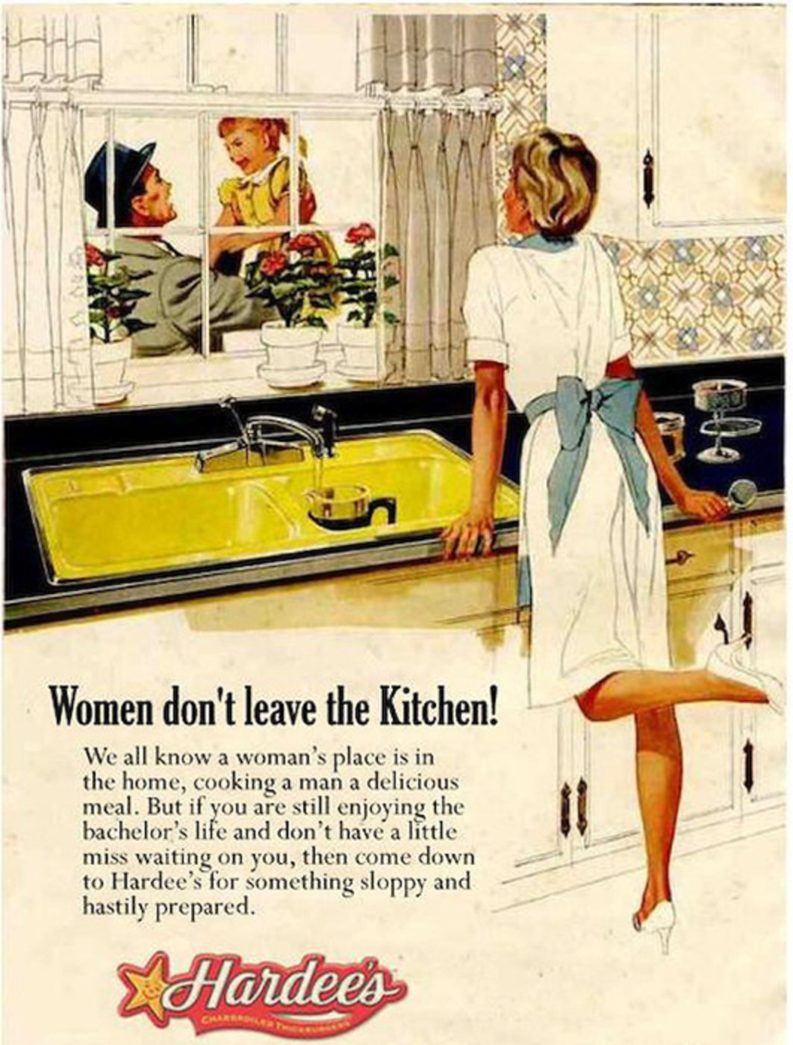
Hardee’s | print advertisement | 1940s
• In 1968, 83% of people aged 25 to 37 were married. By 2018, that figure had dropped to 46%, according to The Atlantic.
• In more than half of heterosexual married couples in the U.S., women are responsible for household cooking; yet only 28% of professional chefs and head cooks are women.
• 66% of women working in restaurants experienced sexual harassment from management and nearly 80% said they faced sexual misconduct from co-workers, NPR reported in 2018.
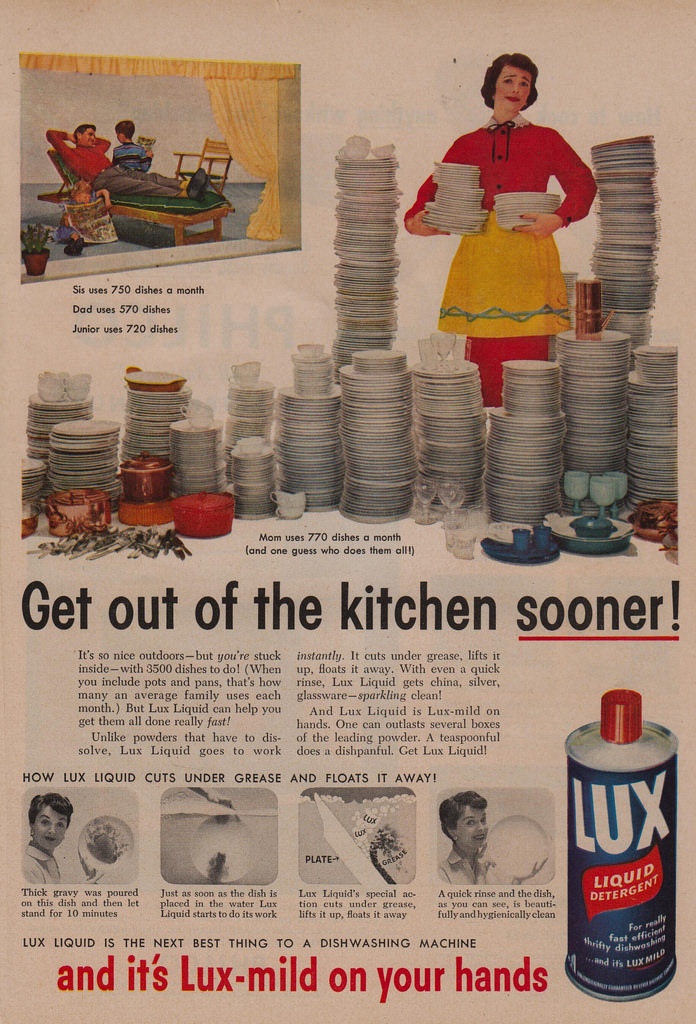
Lux | print advertisement | 1965
• A 2019 Gallup poll of 3,000 adult men and women found that women are still more likely than men to wash dishes in U.S. households.
• The first commercially successful dishwasher was invented by a woman, Josephine Garis Cochrane, in 1886.
• Though quickly embraced by hotels and restaurants, where hot water was easily accessible, dishwashers weren’t common in household kitchens until the 1950s. Today, they’re in 80 million American homes.
• Use of a modern dishwasher saves 230 hours, or nearly 10 days, per year, compared to hand-washing, according to the Washington Post.
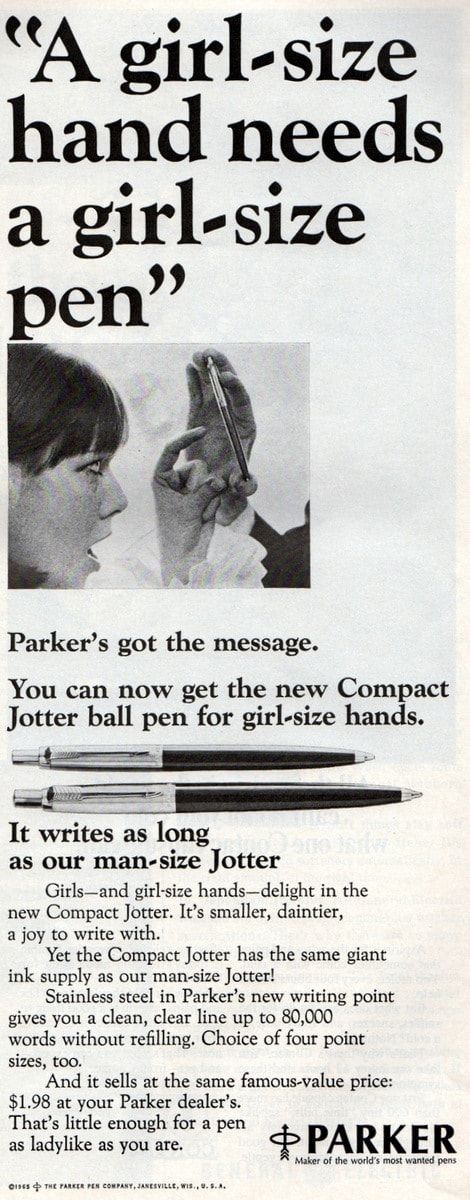
Parker | print advertisement | 1965
• The average length of an adult male’s hand is 7.6 inches — from the tip of the longest finger to the crease under the palm. The average length of an adult female’s hand is 6.8 inches, according to Healthline.
• In 2019, The New York Times Book Review, for the first time in 10 years, published more than 50% women authors (53.78%). Conversely, Harper’s and The Atlantic each published only 36% female writers, according to the publishing industry’s VIDA Count that tracks such things.
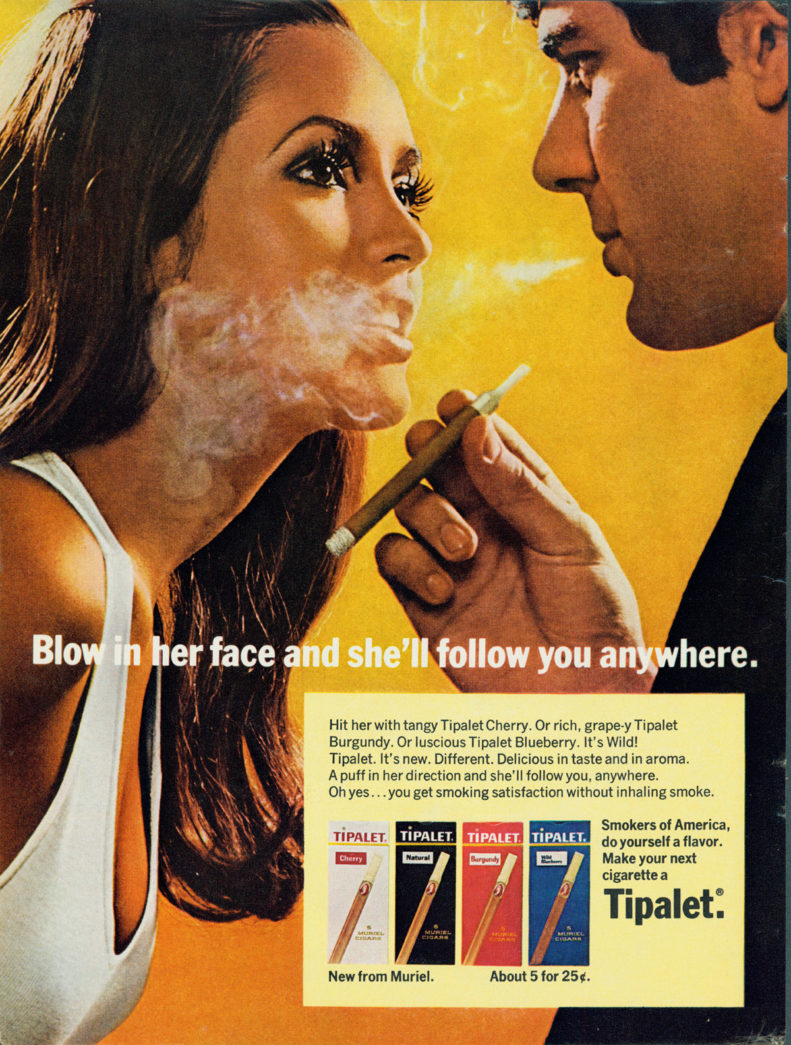
Tipalet | print advertisement | 1969
• An estimated 42% of American adults were regular smokers in the 1960s. By 2010, that figure had dropped to 22% of adult men and 18% of adult women.
• Camel cigarettes sponsored the nation’s first TV news program, “Camel News Caravan,” featuring an ashtray on the desk in front of the newscaster and the Camel logo behind him. The 15-minute news show ran from 1949 to 1956.
• The last televised cigarette ad in the U.S. ran at 11:50 p.m. on Jan. 2, 1971 during “The Tonight Show Starring Johnny Carson.”
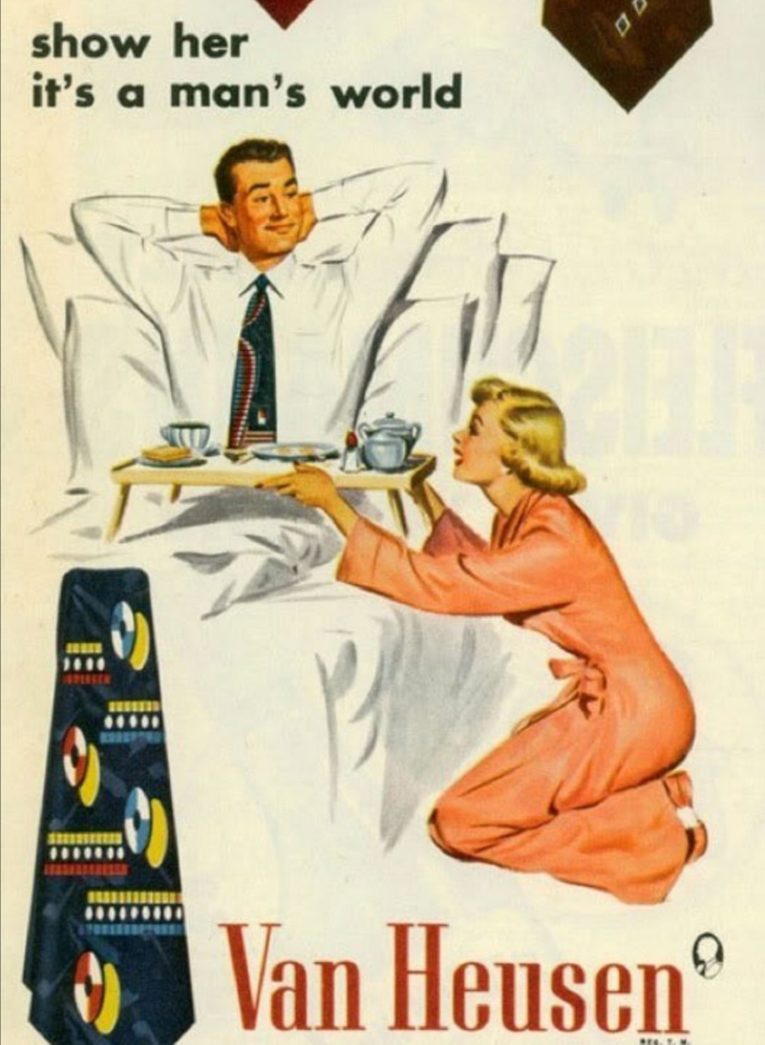
Van Heusen | print advertisement | 1940s
• In 2019, women were CEOs at 33 Fortune 500 companies, an increase from the 2018 total of 24 women, says CNBC.
• 94% percent of American adults say they would support a well-qualified woman for president, increasing from 33% in 1937 and 50% in 1968.
• Research has shown no significant difference in the average IQ of men and women, but women have scored higher in emotional intelligence, which is responsible for 58% of performance in all jobs, according to a 2016 Forbes column.
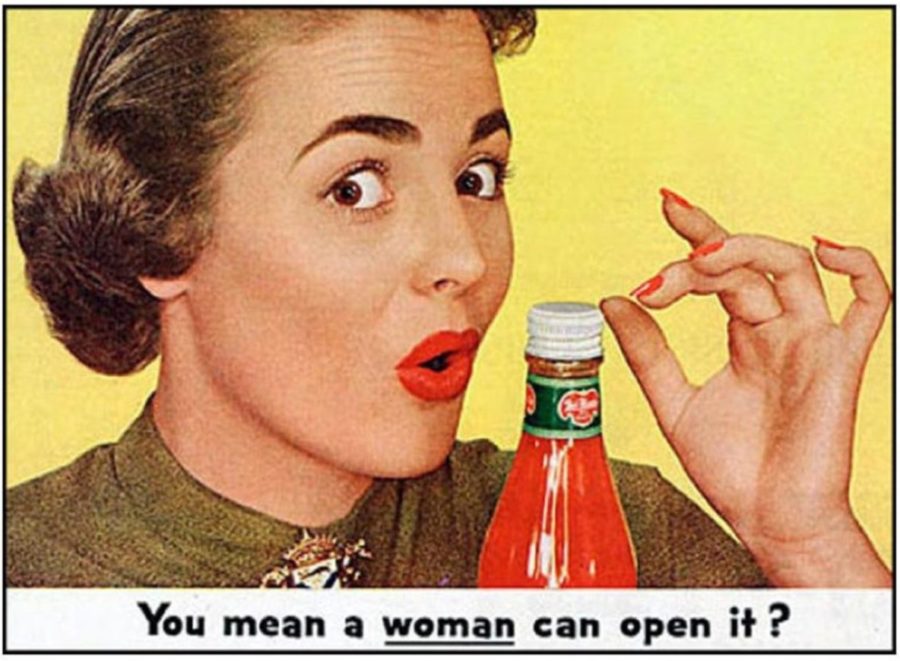
Alcoa Aluminum | print advertisement | 1953
• The first sentence of the article following the Alcoa Aluminum ad stated, “Easily—without a knife blade, a bottle opener, or even a husband!”
• British newspaper ‘The Independent’ claimed in 2010 that the ad enforced the stereotype of a woman as an unintelligent housewife.
• The ad has been described as an example of social stereotypes during the 1950s, and is frequently cited as emblematic of the Mad Men era, according to Business Insider.















